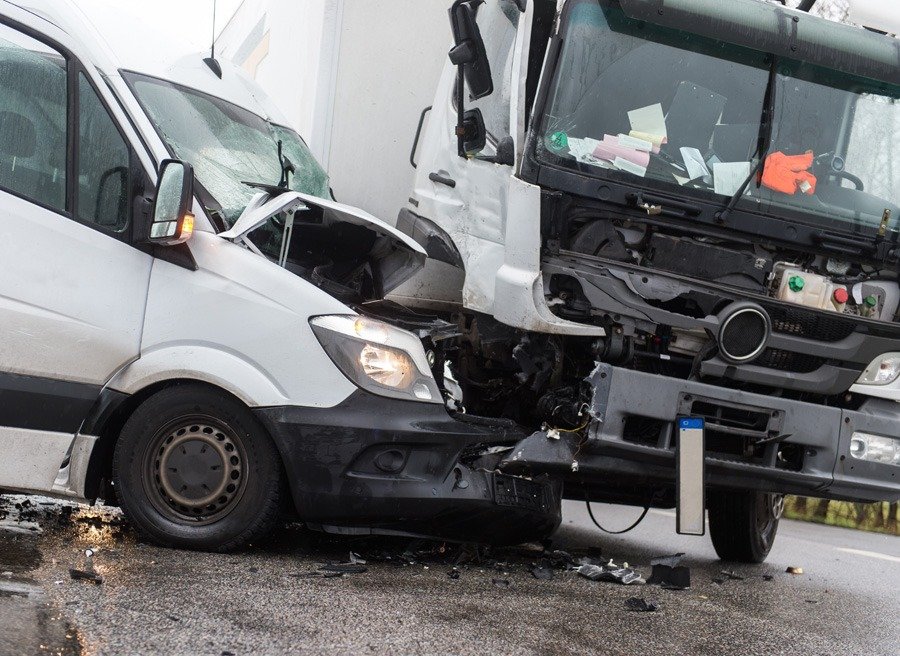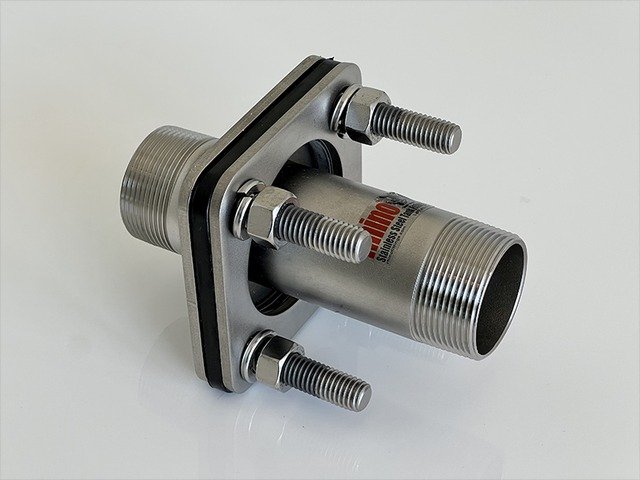Key Evidence That Strengthens a Truck Accident Claim
A truck accident is a fundamentally different and often more devastating event than a standard car collision. The sheer size and weight of a commercial truck, which can weigh up to 80,000 pounds, means that a collision with a passenger vehicle almost always results in catastrophic injuries, extensive property damage, and a life-altering experience for the victims. The legal process that follows a truck accident is also far more complex, involving a web of federal regulations, multiple potentially liable parties, and a trucking company that has a vested interest in minimizing its financial exposure. For an individual who has been injured in a truck accident, the pursuit of compensation is a daunting task. However, the key to a successful claim is the strategic gathering and presentation of evidence, which can be the difference between a fair settlement and a denied claim.
This comprehensive guide will provide an expert’s insight into the key evidence that strengthens a truck accident claim in the state of Georgia. We will delve into the critical, time-sensitive actions that an attorney takes to preserve and secure this evidence, from the immediate aftermath of an accident to the meticulous investigation of the corporate paper trail. By understanding the types of evidence that are available, a victim can empower their legal team to build a powerful and compelling case that holds every at-fault party accountable for their negligence and secures the full and fair compensation they deserve.
The Immediate Aftermath: Preserving the Scene and Your Rights
The moments and hours following a truck accident are a critical period for preserving crucial evidence. The actions you take in this time can have a profound impact on the outcome of your claim. A lawyer understands the urgency of this period and will act quickly to preserve the scene and protect your rights.
The Police Report: The Official Narrative
The official police report is the cornerstone of any truck accident claim. It is the first formal document that provides an official narrative of the accident, including the officer’s observations, witness statements, and any citations issued. While not always admissible as direct evidence in court, it serves as a vital reference in insurance claims and settlement negotiations. The report may also contain the officer’s opinion on fault, which can be a powerful argument for liability. A victim should always obtain a copy of the police report as soon as it is available, as it is a crucial piece of the puzzle that a lawyer will use to build their case. A police report may also contain key details about the trucking company, the truck’s license plate number, and the driver’s information, all of which are vital for a successful claim.
Photographs and Videos: The Visual Record
Photographic and video evidence from the accident scene can provide a powerful visual record of the accident. If you are physically able, you should take photographs and videos of the scene from multiple angles. This includes the positions of the vehicles, the extent of the damage, the road conditions, traffic signals, skid marks, and any debris patterns. You should also take photographs of your injuries and the damage to your vehicle. Videos from a dashcam, surveillance cameras, or bystanders can also provide real-time evidence of how the crash occurred. This visual evidence can be used by an accident reconstruction expert to recreate the collision and to corroborate a victim’s testimony.
Witness Statements: The Unbiased Perspective
Eyewitnesses provide an unbiased perspective on the accident, and their statements can be crucial in a claim. If there are witnesses present at the scene, you should obtain their contact information and, if possible, a brief statement about what they observed. A lawyer will use these statements to support your version of events and to challenge the narratives presented by the at-fault parties. Witness testimony is particularly useful when the truck driver or the trucking company disputes liability. A lawyer will follow up with witnesses and obtain a formal, written statement, which can be used to strengthen your case.
Beyond the Scene: The Critical Documentation
The evidence in a truck accident claim extends far beyond the immediate scene of the accident. A lawyer will launch a full and detailed investigation to gather all the necessary documentation, which is often the key to proving negligence.
The Medical Record: Proof of Your Injuries
The medical record is a crucial piece of evidence that provides proof of your injuries and the full extent of your damages. It is vital to seek prompt medical attention after an accident, even if you feel fine initially. The adrenaline and shock of an accident can mask serious injuries that may not become apparent for hours or even days. Seeking prompt medical attention creates an official medical record that directly links your injuries to the accident, which becomes crucial evidence if you later file a personal injury claim. You should keep detailed records of all medical treatments, including emergency room visits, follow-up appointments, physical therapy sessions, and prescription medications. These documents will become essential components of your personal injury case, as they provide an objective record of your pain, suffering, and a long road to recovery.
The Spoliation Letter: Preserving Key Evidence
The trucking company has a vested interest in minimizing its financial exposure, and they may be tempted to destroy or alter critical evidence after an accident. For this reason, a lawyer will send a spoliation letter to the trucking company, which is a formal legal document that instructs them to preserve all evidence related to the accident. This includes the truck’s black box data, driver logs, maintenance records, and any other documentation that may be relevant to the case. A trucking company that ignores a spoliation letter and destroys evidence can be held liable for spoliation of evidence, which can be a powerful legal argument for a victim.
The Federal Motor Carrier Safety Administration (FMCSA) Regulations
The trucking industry is governed by a complex web of federal regulations, and a trucking company that violates these regulations can be held liable for negligence. The FMCSA is the government agency responsible for regulating commercial motor vehicles, such as semi-trucks and buses. The FMCSA has a host of safety rules and regulations that are designed to reduce trucking accidents, including hours-of-service regulations, drug and alcohol testing, and vehicle maintenance and inspection requirements. A lawyer who specializes in truck accidents will have a deep knowledge of these regulations and will use them to prove that a trucking company’s negligence led to the accident. For example, a lawyer may use a driver’s logbook to prove that a driver was fatigued or that a trucking company pressured a driver to violate hours-of-service limits, which is a powerful argument for negligence.
The Black Box: Uncovering the Truck’s Secrets
Many modern commercial trucks are equipped with an Event Data Recorder (EDR), often referred to as a “black box.” This device is a gold mine of information that can provide a detailed look at the moments before, during, and after a crash. A lawyer, such as an atlanta truck accident lawyer cambre & associates, will act quickly to secure this data before it is lost or destroyed.
The black box records a wide range of information, including the vehicle’s speed, acceleration and deceleration, braking status, steering input, and seatbelt usage. It can also provide information on the force of impact and the deployment time of the airbag. This data can be used to corroborate a victim’s testimony and to prove that a truck driver’s negligence, such as speeding or failing to brake in time, was the direct cause of the accident. The black box data can also be used to prove that a manufacturer’s negligence, such as a faulty brake system, contributed to the crash. This technical evidence is highly persuasive in court, as it provides an objective record of the events that led to the accident.
The Corporate Paper Trail: Trucking Company Records
The trucking company’s internal records are a crucial piece of evidence that can be used to prove negligence. A lawyer will use a discovery process to subpoena these documents, including maintenance records, driver logs, and employment records.
Maintenance Records: Trucking companies are legally required to perform routine inspections and maintenance on their vehicles under FMCSA regulations. Mechanical failures due to poor maintenance, faulty brakes, or worn-out tires could indicate negligence on the part of the trucking company. A lawyer will scrutinize these records for any inconsistencies or signs of neglect. If the records are missing or incomplete, it may suggest that maintenance was neglected or improperly documented, which can be a powerful legal argument for a victim. A recent case, for instance, resulted in a significantly larger settlement for a victim after records revealed a history of ignored brake system failures.
Driver Logs and Work Hours: Truck driver logs and Electronic Logging Device (ELD) data are crucial for proving that a driver was fatigued or that a trucking company pressured a driver to violate hours-of-service limits. The FMCSA has strict hours-of-service regulations that are designed to prevent fatigued driving, which is a major cause of truck accidents. A lawyer will review these logs to prove that a driver was over the limit during the truck accident, which can be a powerful argument for negligence.
The Human Element: Witness and Expert Testimony
While technical and corporate records provide objective facts, the human element of a case, from witness testimony to expert analysis, is often what brings a claim to life in a courtroom.
Eyewitness Testimony: Eyewitnesses provide an unbiased perspective on the accident, and their statements can be crucial in a claim. A lawyer will follow up with witnesses and obtain a formal, written statement, which can be used to support your version of events and to challenge the narratives presented by the at-fault parties. Witness testimony is particularly useful when the truck driver or the trucking company disputes liability.
Expert Testimony: A lawyer will often work with a variety of experts, such as accident reconstruction specialists, medical experts, and trucking industry experts, to strengthen a case. An accident reconstruction expert can use physical evidence, black box data, and witness statements to recreate the collision and to determine the cause of the accident. A medical expert can provide a detailed explanation of a victim’s injuries and the long-term impact on their life, and a trucking industry expert can testify about violations of FMCSA regulations and proper vehicle maintenance. This expert testimony can be highly persuasive in court, as it provides objective facts and scientific analysis that brings a claim to life.
The Strategic Partner: Why a Lawyer is Essential
The decision to hire a lawyer is a strategic one, and the value they bring to a truck accident claim in Atlanta is immense. A lawyer provides a professional partnership that is focused on your recovery and financial well-being. A lawyer, such as the team at Cambre & Associates, offers a professional partnership that is focused on your recovery and financial well-being.
An attorney provides an objective and accurate valuation of your case. They understand that the cost of an injury is not just the immediate medical bills; it is the long-term cost of a life that has been changed forever. They will work to ensure that every aspect of your damages, from lost wages to pain and suffering, is accounted for in your claim. A lawyer also handles all communication and paperwork with the insurance companies, freeing you from a stressful and time-consuming process. They will also provide you with access to their network of experts, such as accident reconstruction specialists and medical professionals, who can provide crucial testimony to strengthen your case.
A lawyer’s services are typically provided on a contingency fee basis, which means you do not pay any attorney fees unless they successfully recover compensation for your case. This allows an injured individual to pursue a claim with a highly skilled and experienced lawyer without any upfront financial burden. This is a powerful advantage that ensures that justice is accessible to all. The decision to hire a lawyer is a decision to fight for the compensation you deserve.
Answering Your Questions: A Comprehensive FAQ
How is a truck accident different from a car accident? Truck accident cases are more complex than car accidents due to the involvement of multiple liable parties, federal trucking regulations (FMCSA), and the potential for catastrophic injuries. These factors require a lawyer with specialized knowledge.
What is a spoliation letter? A spoliation letter is a formal legal document sent by an attorney to the trucking company, instructing them to preserve all evidence related to the accident, including black box data and maintenance records. This prevents the company from destroying or altering crucial evidence.
Can I still file a claim if the truck driver was not at fault? Yes. In a truck accident, liability can be extended to multiple parties beyond the driver, including the trucking company, the cargo loader, or a parts manufacturer. A lawyer will investigate all potential avenues of liability to ensure you receive compensation.
How does a lawyer determine the value of a truck accident claim? A lawyer will determine the value of a claim by meticulously calculating all damages, including past and future medical expenses, lost wages, and non-economic damages like pain and suffering. They will also consult with experts to ensure an accurate and fair valuation.
What is the statute of limitations for a truck accident in Georgia? In Georgia, the statute of limitations for a personal injury claim is generally two years from the date of the injury. It is critical to consult with a lawyer as soon as possible to ensure you do not miss this important deadline.
About Cambre & Associates
At Cambre & Associates, we are dedicated to protecting the rights of injury victims across Georgia. Our team of experienced attorneys focuses exclusively on personal injury law, representing individuals and families whose lives have been disrupted by accidents, negligence, or wrongful conduct. We understand that recovering from a serious injury is not only about medical treatment but also about financial stability, accountability, and justice.
Our practice areas include auto accidents, truck accidents, wrongful death, premises liability, and other injury-related claims. With a strong foundation in legal strategy and a client-centered approach, we work tirelessly to investigate cases, preserve critical evidence, and pursue maximum compensation.
What sets us apart is our commitment to guiding clients through every step of the legal process. From the initial consultation to trial, we ensure that our clients are informed, supported, and empowered to make the best decisions for their future. At Cambre & Associates, your fight for recovery is our mission.
Business Name: Cambre & Associates Injury & Accident Lawyers
Address: 2310 Parklake Dr NE Suite 300, Atlanta, GA 30345
Phone number: (770) 502-6116






